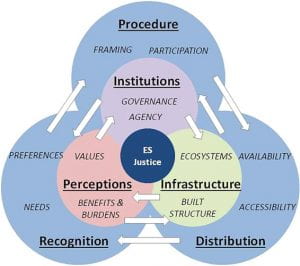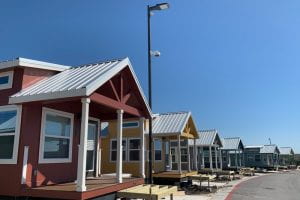“I think race has to do with possibility—what we are able to imagine, to see, to construct; what we believe we can become; and how we conceptualize this possibility are all informed by our life experience.” – Carolyn Finney
The third aspect of Just Sustainability is justice & equity in terms of recognition. Over the past few years, we have seen a spike in discrimination. We’ve seen it from a lack of equal opportunities through work, education, food, etc. Amy Krings & Tania M Schusler state that “Environmental justice is the fair treatment and meaningful involvement of all people regardless of race, color, national origin, or income with respect to the development, implementation, and enforcement of environmental laws, regulations and policies… Fair treatment means that no group of people should bear a disproportionate share of environmental burdens or benefits; there should be fairness in the distribution of access to clean air, water, and land.” Justice can’t be served until all peoples are accounted for.
Carolyn Finney quotes “I think race has to do with possibility—what we are able to imagine, to see, to construct; what we believe we can become; and how we conceptualize this possibility are all informed by our life experience.” To summarize, race can control how people experience life, whether that’s in a good way, or being discriminated against. Lucky, Austin’s housing opportunities for the homeless takes all of this into account. The city’s action plan focuses around making affordable sustainable houses for anyone who is homeless, no matter race, gender, etc. Community First! village also has guidelines they follow to make sure equal opportunity for housing is available.
“in this last year or two when we been, as a country, focusing on equality and fairness and diversity, all those things get filtered through architecture how can we make spaces more accessible, more approachable, more welcoming to everybody, not just people who are like me, but everybody. And how can we, in that diversity of welcome, learn more about each other.” – Heather H Mckinney



